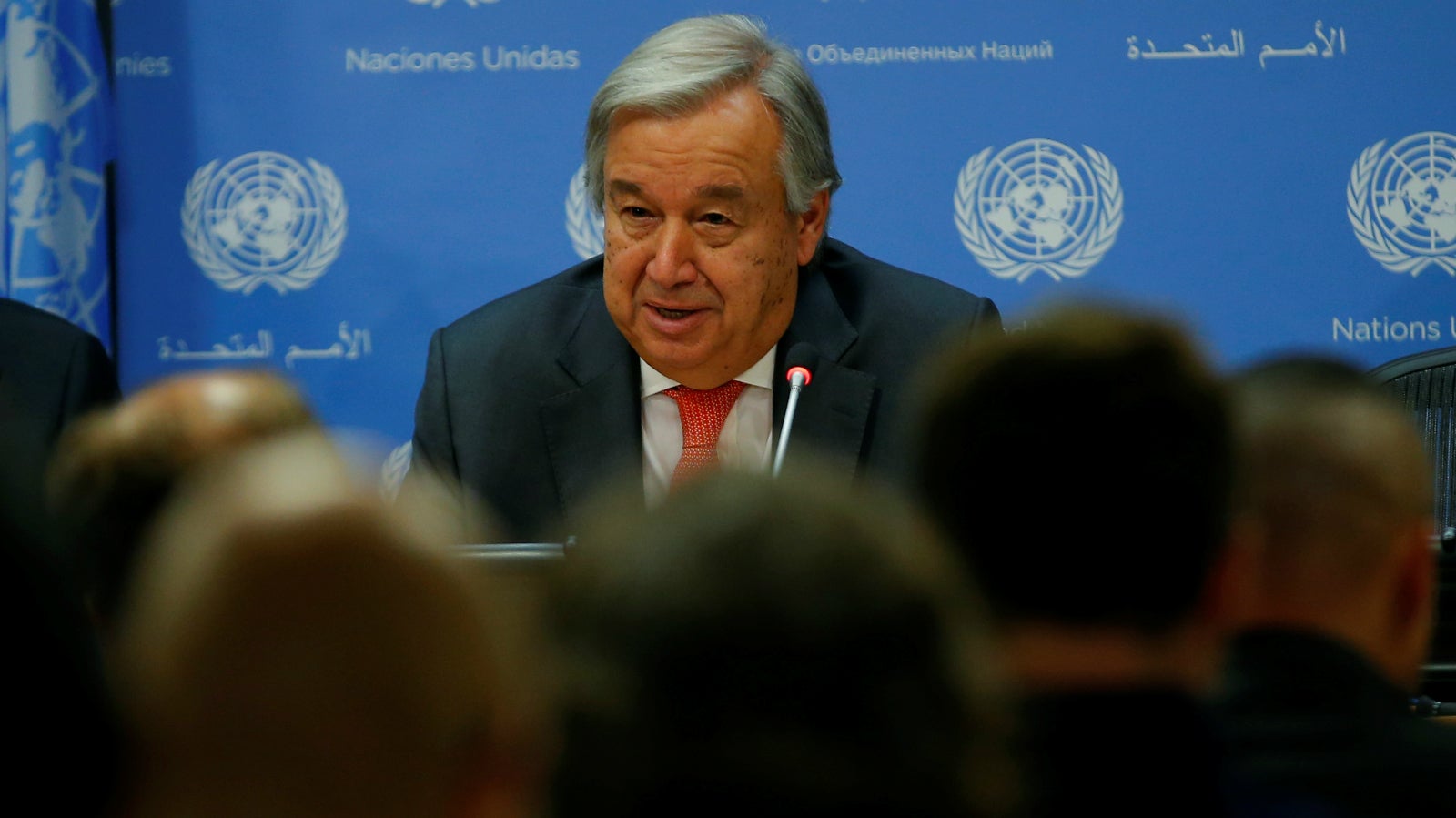The UN’s weak position on the Rohingya refugee crisis is a symptom of its weakness in general
United Nations, New York


United Nations, New York
Earlier this month, António Guterres did something no UN secretary general has done in 28 years. He asked the people with the real power in the UN, the handful of countries on the security council, to intervene in a humanitarian conflict.
“The last official letter sent by the secretary general to the security council on an issue was in 1989 about Lebanon,” Guterres told a press briefing today (Sept. 13). The letter from Guterres, who became the UN chief at the start of this year, asked the security council to end the violence by Burmese security forces against the Rohingya Muslims in the country’s northern Rakhine region.
But by the end of today it was clear that Guterres’s attempt at persuasion had yielded little. As diplomats streamed out of a meeting of the 15-member security, the council’s president, Tekeda Alemu, made a short statement to the press:
They (member states) expressed concern about excessive violence during the security operations and called for immediate steps to end the violence in Rakhine, de-escalate the situation, reestablish law and order, ensure the protection of civilians, restore normal socio-economic conditions, and resolve the refugee problem.
Many people were hoping for something a little stronger. An estimated 370,000 Rohingya have already fled to Bangladesh, and the violence is continuing in parts of Rakhine. ”In my national capacity, I probably would have liked it to move a little bit further,” said Alemu, who is Ethopia’s ambassador to the UN.
The UN’s human rights chief, Zeid Ra‘ad al-Hussein, has described the situation in Rakhine as a “textbook example of ethnic cleansing,” and human-rights groups have criticized the security council for its inaction. “Those countries that have spoken out forcefully for an end to the crisis in Myanmar…need to ask the security council to urgently have an open, public meeting, not behind closed doors,” Louis Charbonneau of Human Rights Watch said on Sept. 12.
And yet even the council’s timid statement was a milestone, says Matthew Rycroft, the British UN ambassador: It was the first time in nine years that the security council had agreed to issue public remarks on the Rohingya issue in Myanmar, which has been festering for decades.
Rycroft says that from the ”language and body language” of their representatives, most of the council’s member states were not opposed to an open meeting. “Several countries want an open session, which, in my national capacity, I would support,” he said. An open session, where member states can clearly articulate their respective positions on the matter, could help ratchet up the pressure on Myanmar. Nonetheless, the council can act only if all five of its permanent members agree, and two of those members, Russia and China, are understood to be backing Myanmar’s government.
In any case it’s not clear how much influence Aung San Suu Kyi, the Nobel peace prize laureate and head of Myanmar’s government, can wield over the country’s powerful military and public opinion, which is strongly anti-Rohingya. She won’t be at the UN’s general assembly, which begins next week. But given the scale of the exodus from Rakhine, the crisis is likely to get significant attention. At least two meetings on the issue will take place next week, Rycroft said, one hosted by Turkey and another by Britain.